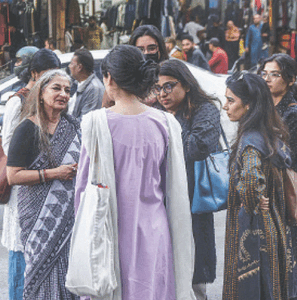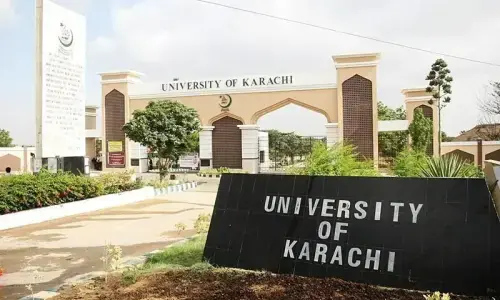KARACHI: The Pakistan Tehreek-i-Insaf government in the centre and the Pakistan Peoples Party administration in Sindh on Thursday appeared to be on the same page for improving the metropolis’s near-collapse public transport system. The authorities in the province vowed to complete the ongoing projects and bring new ones within the shortest possible time while those in the centre promised to power the system with environment-friendly biomethane produced from animal waste as a fuel.
This will provide an efficient and affordable transport solution for citizens and significantly reduce the carbon emissions level in the metropolis.
Speaking at the national conference on Biogas Project for Karachi Red Line Bus Rapid Transit (BRT) at a hotel here, Adviser to Prime Minister on Climate Change Malik Amin Aslam and the Sindh transport minister shared their plans for the transport system, raising hopes for the city where the transport system is on the verge of collapse due to a history of failure, negligence, inefficiency and lack of follow through in both the government and public-private partnership projects.
Mr Aslam said the government was taking serious steps for the improvement of environment and strictly pursuing the vision of Clean and Green Pakistan. He said developing urban transport was not just a matter of supplying buses.
The adviser said that in the era of environmental concerns, a critical consideration was how to power the system. He reiterated that climate change remained a top priority for the federal government to support Prime Minister Imran Khan’s initiative to reduce the effects of climate change and any potential initiative should be encouraged and replicated across the country.
The environment-friendly fuel may help reduce carbon emissions level
The adviser said that over 50,000 gallons of water was being wasted daily in Karachi, which would be utilised in this project. Emission of carbon gas at a huge level was polluting the environment of the megalopolis. He said that 213 buses would benefit around 300,000 people of the city under the project on a daily basis. He termed the project a “transformational” one and a “big gift” for Karachiites.
Sindh Minister for Transport Awais Qadir Shah in his address said that two major challenges were being faced by the government; lack of transport facilities for the masses and environmental change. He said the mass transit project was the most important need of the city and this project would benefit the citizens at large with the provision of affordable travelling facility besides being an eco-friendly project.
Asian Development Bank (ADB) Country Director for Pakistan Xiaohong Yang said most jobs and employment opportunities were located in the urban economies. Road congestion was costing the Asian economies an estimated two to five per cent of the gross domestic product (GDP) every year due to lost time and higher transport costs.
She said that one of the biggest challenges being faced by Karachi like any other urban city of Asia was maintaining vital economic growth while ensuring quality of life and liveability standards. The Karachi Red Line BRT, especially the biogas project, was part of ADB’s vision to transform Karachi into a competitive, equitable and environmentally sustainable urban centre.
Ambassador of France to Pakistan Marc Barety also spoke at the conference and said that his country’s Agence Francaise de Development (AFD) had been working in Pakistan since 2006. The AFD was also funding the Red Line project as it was focusing on projects of urban management, he added.
He said the AFD was prioritising such environment-friendly projects. The scheme was a wonderful example of international cooperation.
Earlier in his welcome address, Sindh Minister for Energy Imtiaz Ahmed Shaikh said that the government of Sindh was fully cooperating with the international agencies for the execution of the mass transit project. He told the participants that the Red Line project was the world’s first transport project to receive funding from UN Green Climate Fund because of its use of an innovative and environment-friendly fuel resource.
Published in Dawn, November 29th, 2019

































